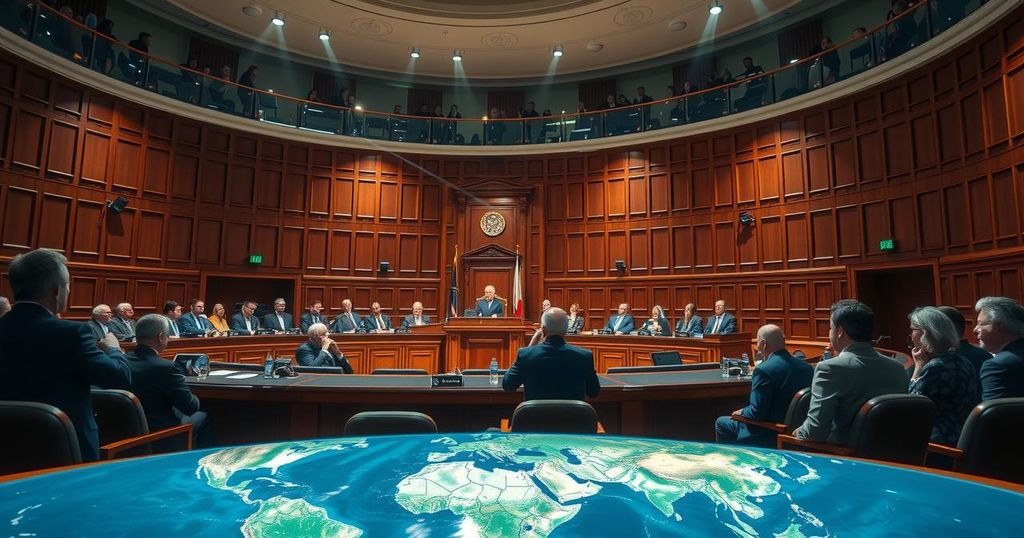Politics
ASIA, BIDEN, DEMOCRACY, EUROPE, HUMAN RIGHTS, INTERNATIONAL COURT OF JUSTICE, JUDICIARY, LEGAL SYSTEM, NATIONAL SECURITY, NETHERLANDS, NEW YORK TIMES, NORTH AMERICA, OCEANIA, PACIFIC ISLANDS, RALPH REGENVANU, SAUDI ARABIA, SECURITY COUNCIL, THE HAGUE, TRUMP, UNITED NATIONS GENERAL ASSEMBLY AND SECURITY COUNCIL, UNITED STATES, VANUATU
Marcus Li
0 Comments
Vanuatu Leads Pivotal Climate Change Case at the International Court of Justice
Vanuatu and over 100 countries are challenging major polluters like the U.S. and China at the International Court of Justice, claiming their failure to limit air pollution violates international law. Ralph Regenvanu emphasized its potential historical importance, as a ruling may highlight disparities in accountability for climate change impacts, despite likely being nonbinding.
The International Court of Justice is currently engaged in a pivotal case involving Vanuatu, a small island nation grappling with the severe impacts of climate change, despite being minimally responsible for greenhouse gas emissions. Vanuatu is collaborating with over 100 other countries in pressing claims against major polluters, including the United States, China, and Saudi Arabia, asserting that their failure to reduce air pollution contravenes international law. Ralph Regenvanu, Vanuatu’s special envoy for climate change, emphasized the gravity of this case, describing it as potentially ‘the most consequential case in the history of humanity.’
As the court, composed of 15 judges elected by the United Nations, deliberates, it faces the challenge of addressing whether the inaction of various nations constitutes a breach of international law. A ruling is anticipated within the next year, though any decision would be nonbinding. Consequently, the practical implications of such a ruling remain uncertain, particularly given the climate commitments many countries—including the United States—have already failed to meet. Nevertheless, this case holds significant symbolic weight for the nations least responsible for climate change yet most affected by its consequences, highlighting a stark disparity in global responsibility.
The lawsuit represents a historic legal challenge initiated by Pacific Island nations, such as Vanuatu, against larger, industrialized countries whose air pollution and greenhouse gas emissions have drastically contributed to global climate change. The significance of this case lies in its focus on accountability and justice for those nations that are disproportionately impacted by environmental challenges while having contributed minimally to the problem. As the world faces escalating climate challenges, this case could establish a critical precedent regarding the responsibility of nations to address air pollution and its global repercussions.
In summary, the case presented by Vanuatu and numerous allied nations at the International Court of Justice centers on the inadequate responses of major polluters, raising essential questions about international accountability in the face of climate change. While the outcome may be symbolic rather than enforceable, the repercussions of this legal battle can resonate powerfully for vulnerable nations seeking justice. Ralph Regenvanu’s comments underline the historic significance and potential impact of the case, solidifying the urgency of addressing climate issues.
Original Source: www.thecooldown.com




Post Comment